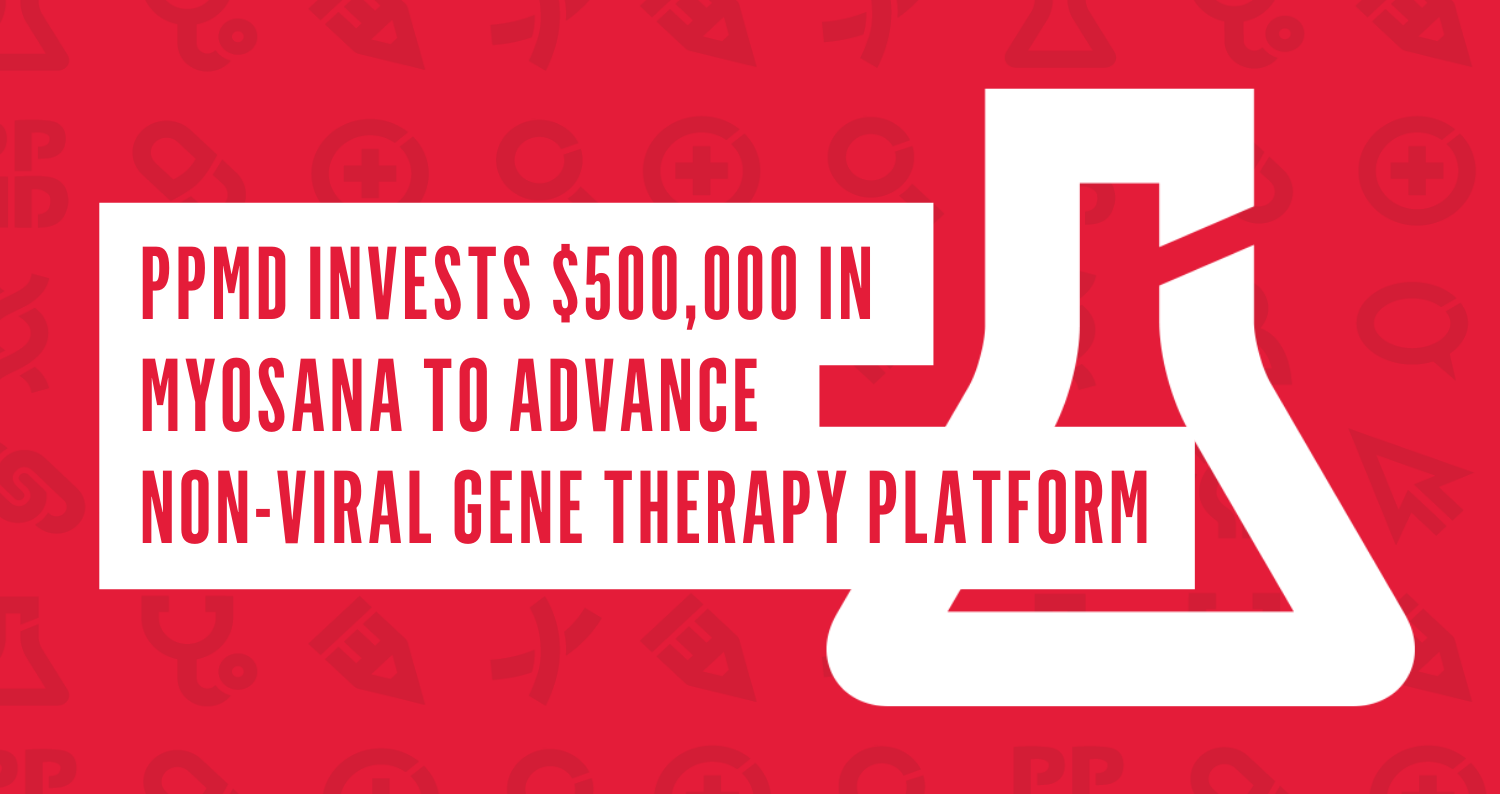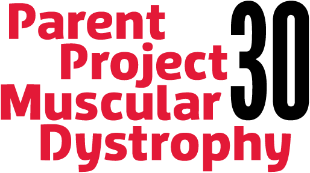
Parent Project Muscular Dystrophy is excited to announce a $500,000 programmatic investment in Myosana Therapeutics, Inc. (Myosana) to support the company’s continuing development and translation of a non-viral gene therapy delivery platform aiming to slow skeletal muscle degeneration and heart failure in Duchenne.
While the field of gene therapy continues to advance and the promise of AAV-mediated delivery of micro-dystrophin transgenes progresses, the Duchenne community has recognized many challenges with these therapies, such as immune responses to viral capsid and barriers to redosing. PPMD previously announced a $350,480 programmatic investment in Myosana in August 2021, to support the development of its non-viral gene therapy candidate that could potentially deliver full-length dystrophin systemically.
Utilizing a non-viral platform to target the delivery of transgenes to muscle has the potential to increase the safety of genetic therapies and enable redosing, a critical challenge facing the field. Additionally, Myosana’s platform has the unique ability to deliver a full-length copy of the dystrophin gene rather than a shortened dystrophin transgene as is currently being utilized.
If successful, such technology holds the potential to slow skeletal muscle degeneration and heart failure in order to enhance and extend the lives of people with Duchenne, as well as other neuromuscular diseases.
PPMD’s investment of $500,000 is part of a larger round of seed funding totaling $5 million for the development of Myosana’s program that will enable a pathway for continued optimization and development of their candidate, as detailed in Myosana’s press release earlier today.
In addition to significant pre-clinical and academic research funding, PPMD makes investments in early-stage biopharmaceutical companies as part of their Venture Philanthropy program to catalyze the development of novel therapies to treat Duchenne and Becker. These investments allow companies to complete critical studies needed to advance investigational products to the clinic, while also providing the potential to create a financial return for PPMD that can then be reinvested into additional Duchenne and Becker research programs in academia or industry. All of PPMD’s research investments (both academic and industrial) undergo a rigorous scientific evaluation and are selected on the basis of potential benefit to the Duchenne community.
To learn more about PPMD’s robust Research Strategy, funding initiatives, and strategies for accelerating drug development, click here.



 by: Parent Project Muscular Dystrophy
by: Parent Project Muscular Dystrophy

